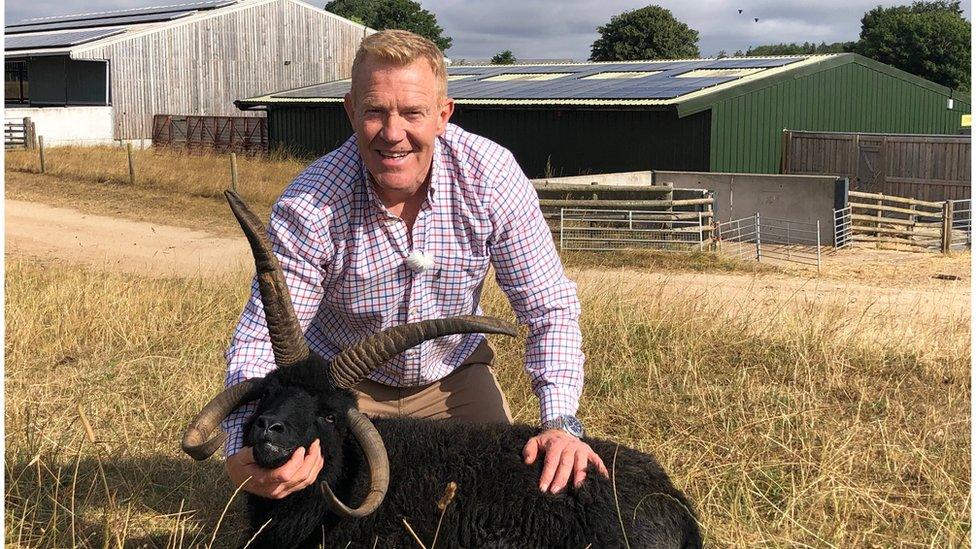Too many farmers are struggling in silence - NFU
- Published
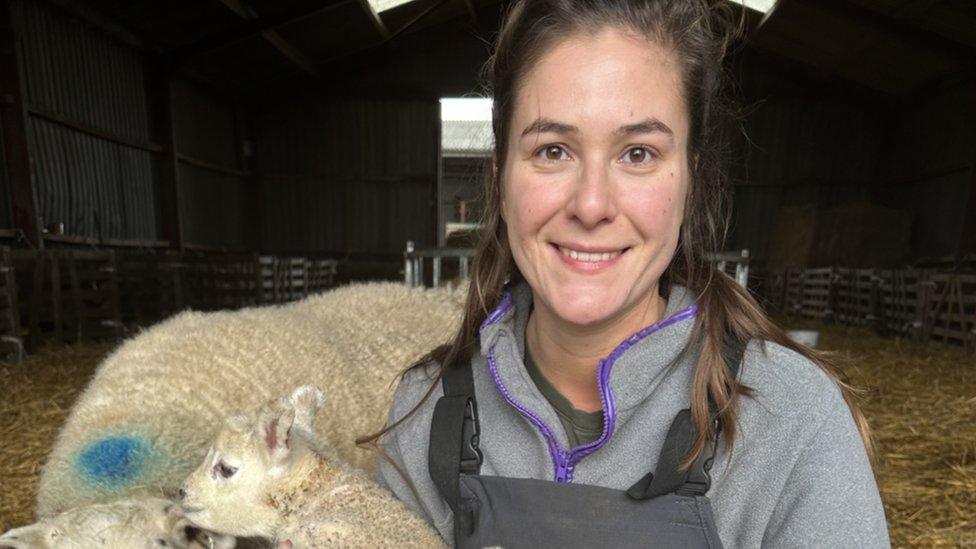
Rebecca Wilson, 28, is calling for farmers to talk about their mental health
When a virus swept through the ewes at Rebecca Wilson's family farm in North Yorkshire, leaving new-born lambs either dead or deformed, it hit hard.
"We dreaded going to the lambing shed - even though we knew there was nothing we could do," she said.
Ms Wilson, 28, said while farmers may be seen a "resilient, hardy bunch" seeing the animals suffer, coupled with a loss of income, took a huge emotional toll.
And she is not alone, a new report by the Farm Safety Foundation says 95% of farmers in the UK under 40 say poor mental health is one of biggest hidden problems they face.
It also found that between 2019 and 2020 133 people in UK farming and associated agricultural trades took their own life.
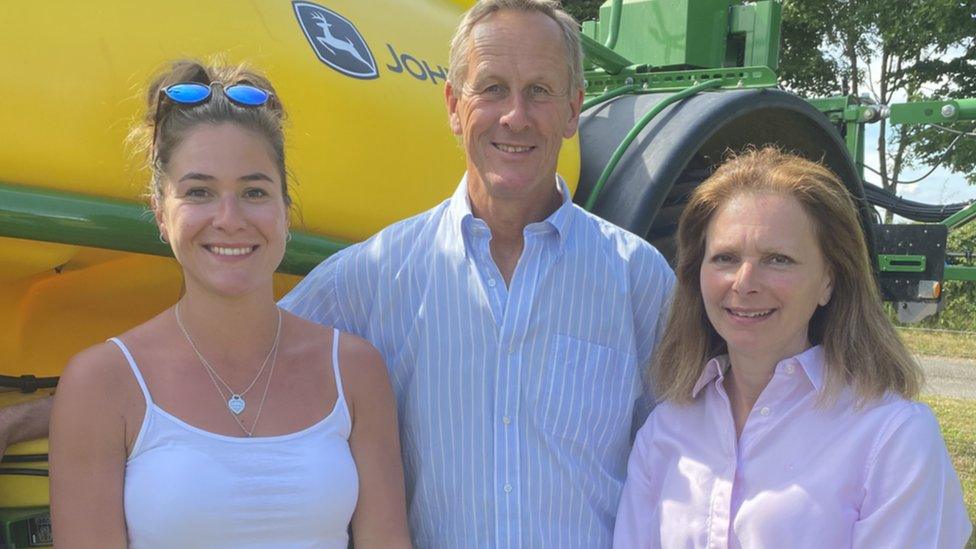
Ms Wilson with her parents Nick and Liz
Ms Wilson said freak occurrences, like the virus, as well as bad weather, loneliness, changing policies, financial uncertainty and the stigma of struggling emotionally are ever present challenges facing the farming community.
"The challenges farmers face are profound," she said.
"One of the most unfair things farmers endure is not getting a price for their products which matches the cost of production, so they are left struggling to make ends meet, which has a knock on effect."
She said the fact many farms were family-run also made it difficult to talk to others about problems as they were facing the same challenges.
"A lot of farming is generational so mixing family and farming means it can be difficult - I don't want to trouble my parents with my consuming worries about things like my place in the farm, finances, the future," she added."
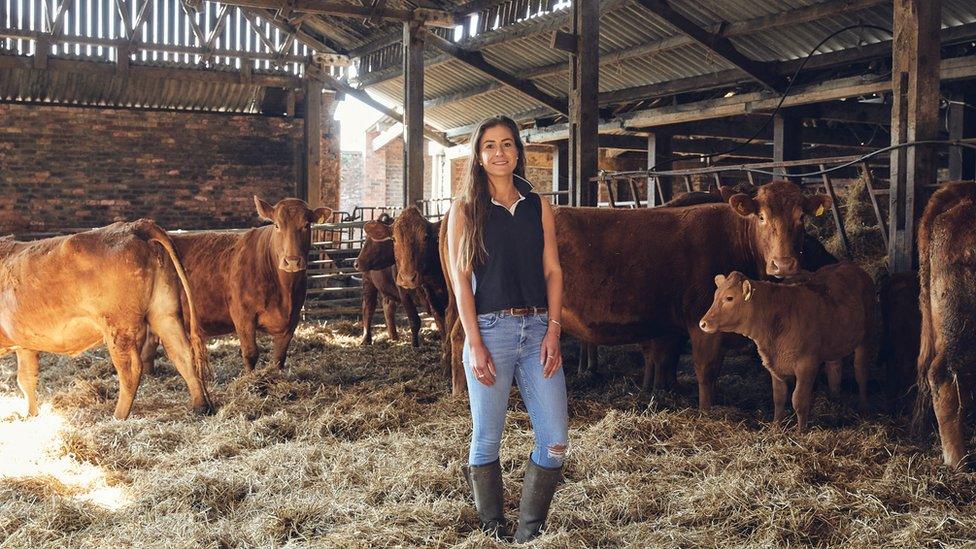
Ms Wilson said 'small' things like having a good diet or listening to podcasts can help
On Monday, the Yellow Wellies charity launched its seventh annual Mind Your Head campaign, external, to raise awareness about farmers' mental health.
A spokesperson for the National Farmers Union, external said: "While we are starting to see a culture change within our sector, where talking about mental health is becoming more and more accepted, there are still too many farmers and growers simply ignoring the signs and struggling on in silence.
"There is help out there, and often reaching out is the first step to feeling more in control."
Ms Wilson added: "There is no shame in struggling. If we are not performing at our top mental and physical capabilities, then how can we do the best for our animals and our crops."

Follow BBC Yorkshire on Facebook, external, X (formerly Twitter), external and Instagram, external. Send your story ideas to yorkslincs.news@bbc.co.uk, external.
Related topics
- Published12 February 2024
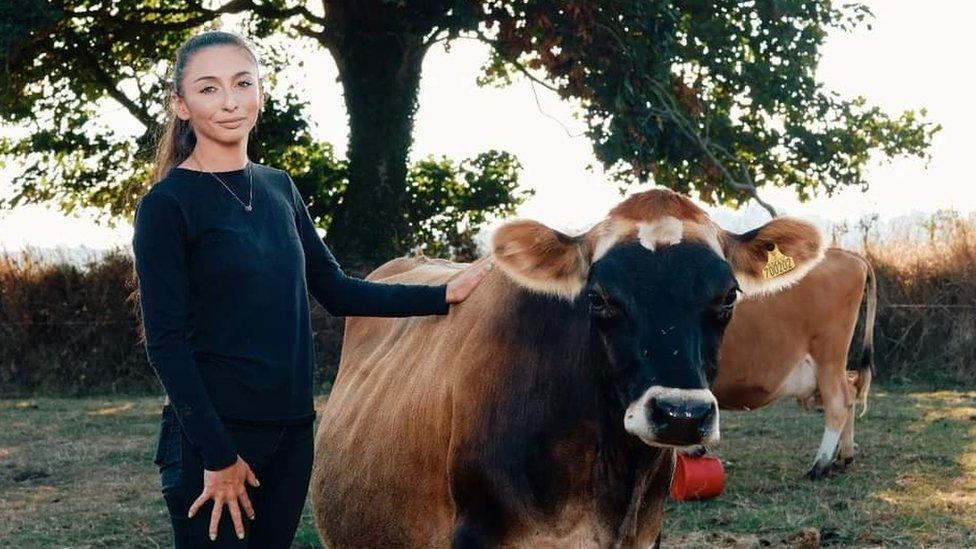
- Published12 February 2024
